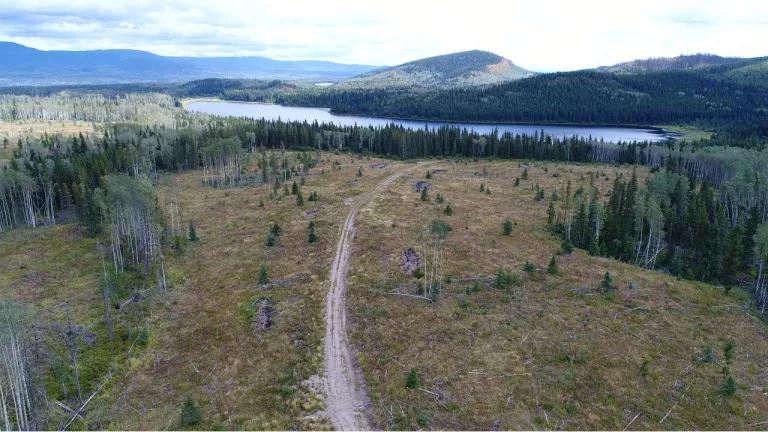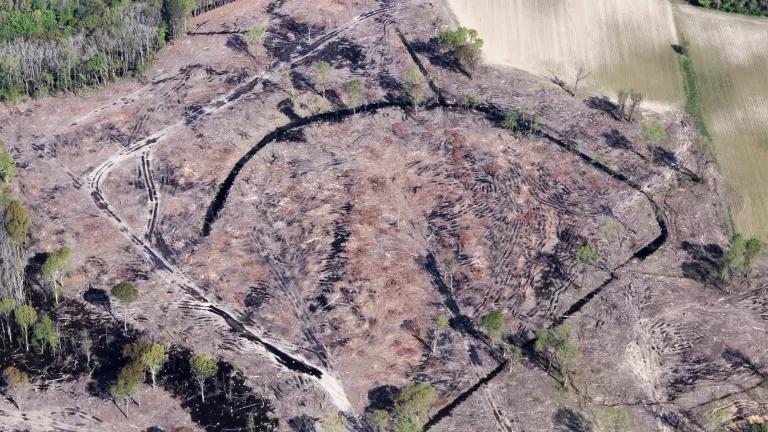UK Likely Complicit in Harming Estonia’s Nature Reserves
Logging in Estonia is destroying the country’s forests. And part of the blame may lay squarely on the UK, which is one of the main importers of wood from Estonia to burn as fuel for electricity in industrial scale power stations, producing bioenergy.

Otepää Nature Reserve in the winter
Logging in Estonia is destroying the country’s forests. And part of the blame may lay squarely on the UK, which is one of the main importers of wood from Estonia to burn as fuel for electricity in industrial scale power stations, producing bioenergy.
Fortunately, the European Commission recently announced that it will begin infringement proceedings against Estonia over logging in Estonia’s nature reserves that are part of Europe’s Natura 2000 network in violation of EU laws intended to protect nature and biodiversity. The Natura 2000 nature reserve system, which is a network of core breeding and resting sites for rare and threatened species, stretches across all EU countries and is aimed at ensuring the long-term survival of Europe's most valuable and threatened species and habitats.
Clearcutting is the dominant logging method in Estonia, used in 95% of total felling. And logging, in part for biomass, is contributing to the devastation of some of the world’s most precious conservation areas. Between 2001 and 2019, Estonia’s Natura 2000 areas lost an area more than twice the size of Manhattan, due in part to demand for biomass. Investigations show that companies like Graanul Invest—Europe’s biggest pellet producer—and its subsidiaries (including Valga Puu), have clearcut large areas (read 17 football fields) of forests in both Estonia’s Haanja and Otepää nature reserves. Estonian NGOs also report that industry actively lobbies for the weakening of Estonian regulations protecting these reserves.
While the UK biomass industry says it burns only leftovers from logging operations (e.g., tops, limbs) and UK policymakers claim the country’s biomass imports meet the highest sustainability standards, whole trees are routinely burned in UK power stations for electricity. In fact, half of the wood pellets burned by Drax—the UK’s biggest bioenergy producer—come from whole trees. And specifically, 65% of the wood pellets Drax imports from Estonia are made from whole trees (what Drax calls “low grade roundwood” and “thinnings.)”
We need our planet’s remaining forests if we stand a chance of reversing our climate and biodiversity crises. Forests are our best defense against climate change, absorbing one-third of human-caused greenhouse gas emissions. Logging for biomass worsens climate change by releasing the carbon stored by forests and reducing their ability to suck carbon from the air. Forests are also incredible strongholds for biodiversity, providing habitat, breeding grounds, and food for thousands of species with their branches, roots, and deadwood.
And yet—the logging continues. Based on projections from the European Commission, increasing deforestation rates mean that forests in Estonia will become net sources of CO2 emissions rather than carbon sinks after 2030. And Estonia’s birdlife is suffering as a result, with woodland birds plummeting at a rate of 50,000 breeding pairs a year and protected species like the Flying Squirrel, Black Stork, and Lesser-spotted Eagle moving further towards extinction.
Due to the infringement proceedings, Estonia now has two months to take the necessary measures—align its domestic nature laws with EU ones to prohibit logging in Natura 2000 reserves if it will significantly affect them—or the Commission may decide refer the case to the European Court of Justice.
For its part, the UK, which is set to host the world at COP27 this autumn and seeks the mantle of global leadership on climate and nature protection, should see the European Commission’s announcement as a wake-up call. The UK government should ask Drax to release the details of, and independently investigate, the full details of biomass sourcing from Estonia right down to the sites on the ground.
And ultimately, this should help drive home the risks of large-scale use of forests as fuel and persuade the UK government to stop the billions in subsidies it provides for biomass electricity each year.




